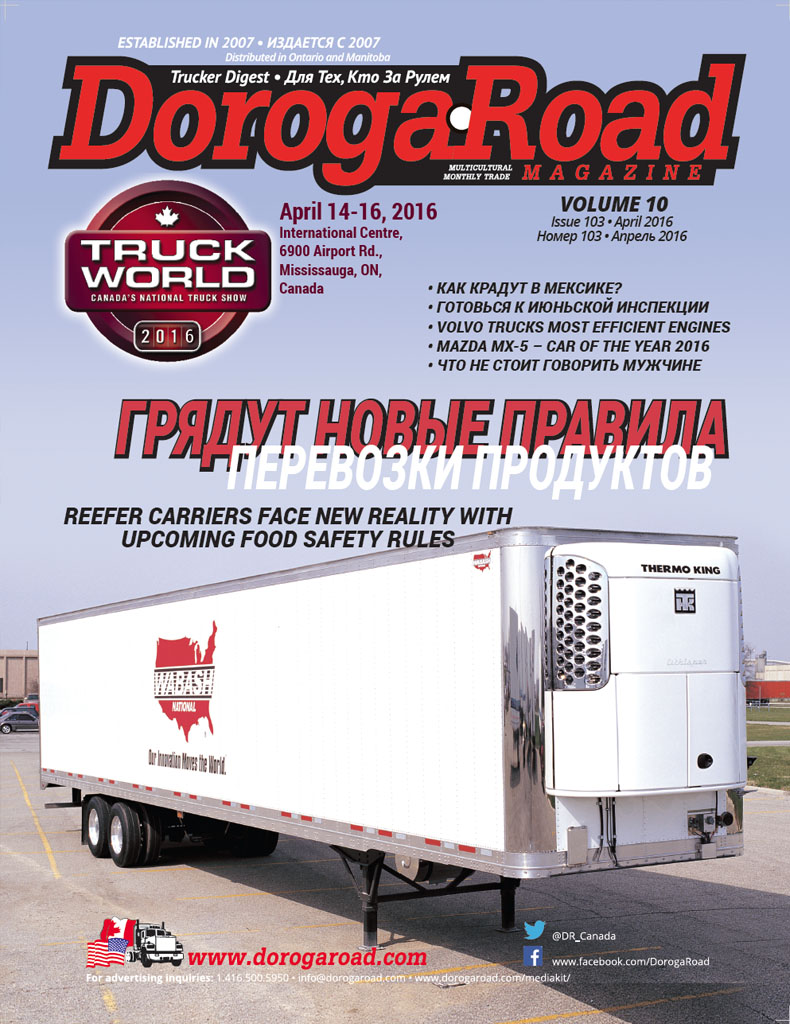Carriers across North America are shifting their operations to comply with customer demands over more stringent requirements related to food safety transportation
Carriers across North America are shifting their operations to comply with customer demands over more stringent requirements related to food safety transportation and a group of Canadian reefer fleets are leading by example, according to one industry expert.
The transportation requirements for the Food Safety Modernization Act (FSMA) in the U.S. are expected released March 31 this year, with enforcement to begin March 31, 2017.
As reported by Fleet Owner, new food safety rules will force refrigerated carriers to make a bevy of operational changes, many of which need to be made ahead of the 2017 compliance date set for those mandates, according to Hugh Latimer, COO for Iron Apple, a food safety compliance firm.
"It's coming down sooner than that, because shippers are demanding it," he told Fleet Owner. "Shippers are the ones held responsible under the new [food safety] rules."
Although these regulations do not impact trucking directly, carriers' customers will likely expect their transportation providers that move human and animal food products to have a written food safety preventative controls plan in place. While many carriers today have a variety of mechanisms to ensure safe food transport, the new regulations present more stringent requirements related to certification, third party verification and record keeping.
The requirements also transfer a lot of transportation risk and responsibility for food safety during transit to carriers, Latimer stressed.
"You must prove that you are following [safety] protocols now; you must prove you are washing trailers between loads, what cleaning agents you are using, and what training your drivers have received and are practicing," he emphasized. "You must document what you are doing on a continual basis."
"… there is quite a gap between what carriers think is needed and what is actually needed."
Latimer pointed out that refrigerated carriers should formulate a rigorous preventive control plan or "PCP" to ensure they've established a compliant food safety program. He emphasized that refrigerated carriers should take the lead in establishing such plans.
"What we tell carriers is that shippers can make you adopt whatever plan they come up with to be compliant – and if you have five different major customers, you might be facing five vastly different food safety plans," he said.
That's why Latimer emphasized carriers should either develop their own plans or adopt one developed by a third party; then demonstrating to their customers that they are compliant.
He added that such plans, if imitated early and thoroughly, can prove to be something of a competitive advantage in the food transportation business, based on Iron Apple's experience with Canadian carriers. (The Canadian Trucking Alliance and Iron Apple developed a Hazard Analysis Critical Control Points (HACCP) Trucking Program to ensure highway carriers meet all standards and requirements for sanitary transportation of food).
"Over the last two to three years we've seen early adopters use their procedures to grow their business in the food market," Latimer explained. "Not only did it help them preserve existing contracts, they won new ones as well."









 Newspaper about
Newspaper about